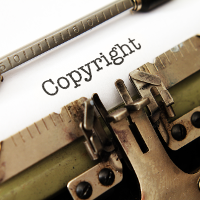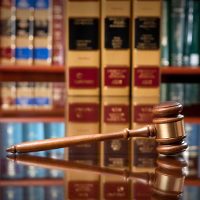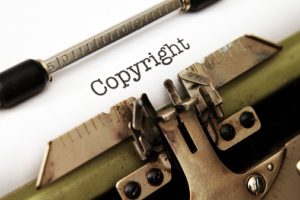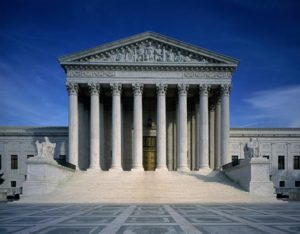 The Ninth Circuit’s recent decision clarifying transformative fair use in Dr. Seuss v. ComicMix gives much to admire (see my deep dive into the opinion here). The court held that a mash-up of plaintiff Seuss’ Oh, the Places You’ll Go! Read more
The Ninth Circuit’s recent decision clarifying transformative fair use in Dr. Seuss v. ComicMix gives much to admire (see my deep dive into the opinion here). The court held that a mash-up of plaintiff Seuss’ Oh, the Places You’ll Go! Read more
Author: Devlin Hartline
Ninth Circuit Clarifies Transformative Fair Use in Dr. Seuss v. ComicMix
 This past Friday, the Ninth Circuit handed down its opinion in Dr. Seuss v. ComicMix, a closely watched transformative fair use case. The decision marks an important milestone in the development of the fair use doctrine, especially as applied to mash-ups—where two or more preexisting works are blended together to create a new work. Read more
This past Friday, the Ninth Circuit handed down its opinion in Dr. Seuss v. ComicMix, a closely watched transformative fair use case. The decision marks an important milestone in the development of the fair use doctrine, especially as applied to mash-ups—where two or more preexisting works are blended together to create a new work. Read more
Copyright Office Questions Legality of Internet Archive’s National Emergency Library
 On March 24, the Internet Archive (Archive) unveiled what it called the “National Emergency Library” (NEL) in order to “address our unprecedented global and immediate need for access to reading and research materials.” The announcement specified that Archive would suspend the waitlist for 1.4 million books in its unlicensed “lending library” until at least June 30, thus allowing an unlimited number of people to download electronic copies of the same book at the same time. Read more
On March 24, the Internet Archive (Archive) unveiled what it called the “National Emergency Library” (NEL) in order to “address our unprecedented global and immediate need for access to reading and research materials.” The announcement specified that Archive would suspend the waitlist for 1.4 million books in its unlicensed “lending library” until at least June 30, thus allowing an unlimited number of people to download electronic copies of the same book at the same time. Read more
New Paper Explores Possibility of Gold-Plated Patents Beyond the PTAB’s Reach
 What if there is a way for a patent applicant to obtain a “gold-plated patent” that is immune to administrative cancellation before the Patent Trial and Appeal Board (PTAB) at the U.S. Patent and Trademark Office (PTO)? This intriguing notion is the subject of a recent paper by Professor Michael S. Read more
What if there is a way for a patent applicant to obtain a “gold-plated patent” that is immune to administrative cancellation before the Patent Trial and Appeal Board (PTAB) at the U.S. Patent and Trademark Office (PTO)? This intriguing notion is the subject of a recent paper by Professor Michael S. Read more
New CPIP Policy Brief: Barnett on the End of Patent Groupthink
 In a new CPIP policy brief entitled The End of Patent Groupthink, CPIP Senior Fellow for Innovation Policy Jonathan Barnett highlights some cracks that have emerged in the recent policy consensus that the U.S. patent system is “broken” and it is necessary to “fix” it. Read more
In a new CPIP policy brief entitled The End of Patent Groupthink, CPIP Senior Fellow for Innovation Policy Jonathan Barnett highlights some cracks that have emerged in the recent policy consensus that the U.S. patent system is “broken” and it is necessary to “fix” it. Read more
Supreme Court Paves Way for Revoking State Sovereign Immunity for Copyright Infringement
 Last week, the Supreme Court handed down its unanimous judgment in Allen v. Cooper, a copyright case involving both actual and metaphorical pirates. The actual pirate was Edward Teach, better known as Blackbeard, who captured a French ship in the Indies, renamed it Queen Anne’s Revenge, used it for piracy, and then later ran it aground near the North Carolina coast in 1718. Read more
Last week, the Supreme Court handed down its unanimous judgment in Allen v. Cooper, a copyright case involving both actual and metaphorical pirates. The actual pirate was Edward Teach, better known as Blackbeard, who captured a French ship in the Indies, renamed it Queen Anne’s Revenge, used it for piracy, and then later ran it aground near the North Carolina coast in 1718. Read more
Members of Congress the Latest to Question ALI’s Restatement of Copyright
 As copyright wonks are surely aware, the American Law Institute (ALI) has been busy with its first foray into restating a body of federal statutory law, the Restatement of Copyright. Restatements have traditionally covered state common-law topics, such as employment, property, trusts, and torts, which are primarily governed by some combination of state statutory and judge-made law. Read more
As copyright wonks are surely aware, the American Law Institute (ALI) has been busy with its first foray into restating a body of federal statutory law, the Restatement of Copyright. Restatements have traditionally covered state common-law topics, such as employment, property, trusts, and torts, which are primarily governed by some combination of state statutory and judge-made law. Read more
Publishers v. Audible: An Army of Red Herrings
Publishers v. Audible: VCRs and DVRs to the Rescue?
 On August 23, a group of publishers, including Penguin Random House, HarperCollins, and Simon & Schuster, sued Audible for copyright infringement. Audible, which is a subsidiary of Amazon, sells and produces audiobooks, and it planned to launch a new speech-to-text feature on September 10. Read more
On August 23, a group of publishers, including Penguin Random House, HarperCollins, and Simon & Schuster, sued Audible for copyright infringement. Audible, which is a subsidiary of Amazon, sells and produces audiobooks, and it planned to launch a new speech-to-text feature on September 10. Read more
Twenty Years Later, DMCA More Broken Than Ever
 With Section 512 of the DMCA, Congress sought to “preserve[] strong incentives for service providers and copyright owners to cooperate to detect and deal with copyright infringements that take place in the digital networked environment.”[1] Given the symbiotic relationship between copyright owners and service providers, Congress meant to establish an online ecosystem where both would take on the benefits and burdens of policing copyright infringement. Read more
With Section 512 of the DMCA, Congress sought to “preserve[] strong incentives for service providers and copyright owners to cooperate to detect and deal with copyright infringements that take place in the digital networked environment.”[1] Given the symbiotic relationship between copyright owners and service providers, Congress meant to establish an online ecosystem where both would take on the benefits and burdens of policing copyright infringement. Read more

